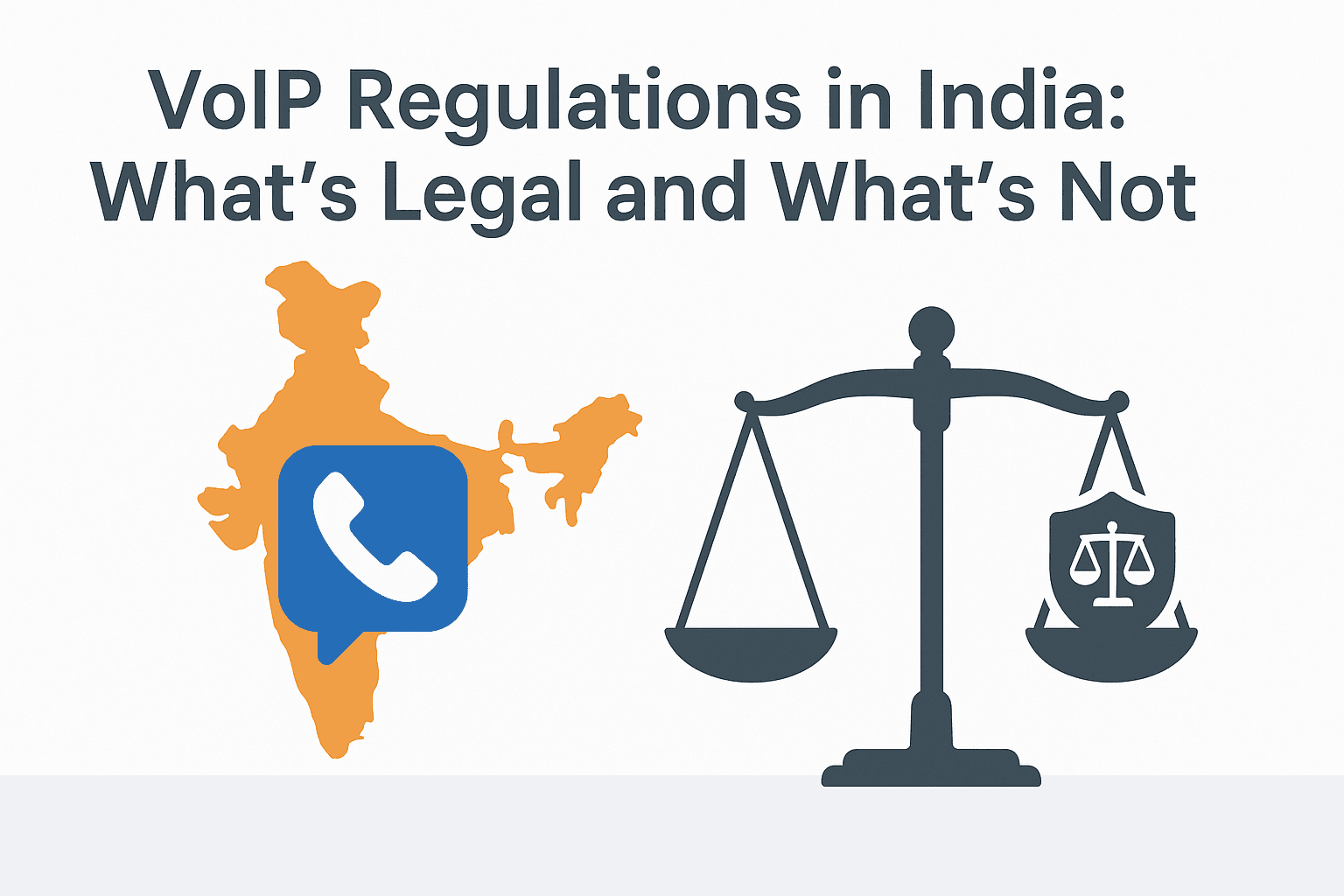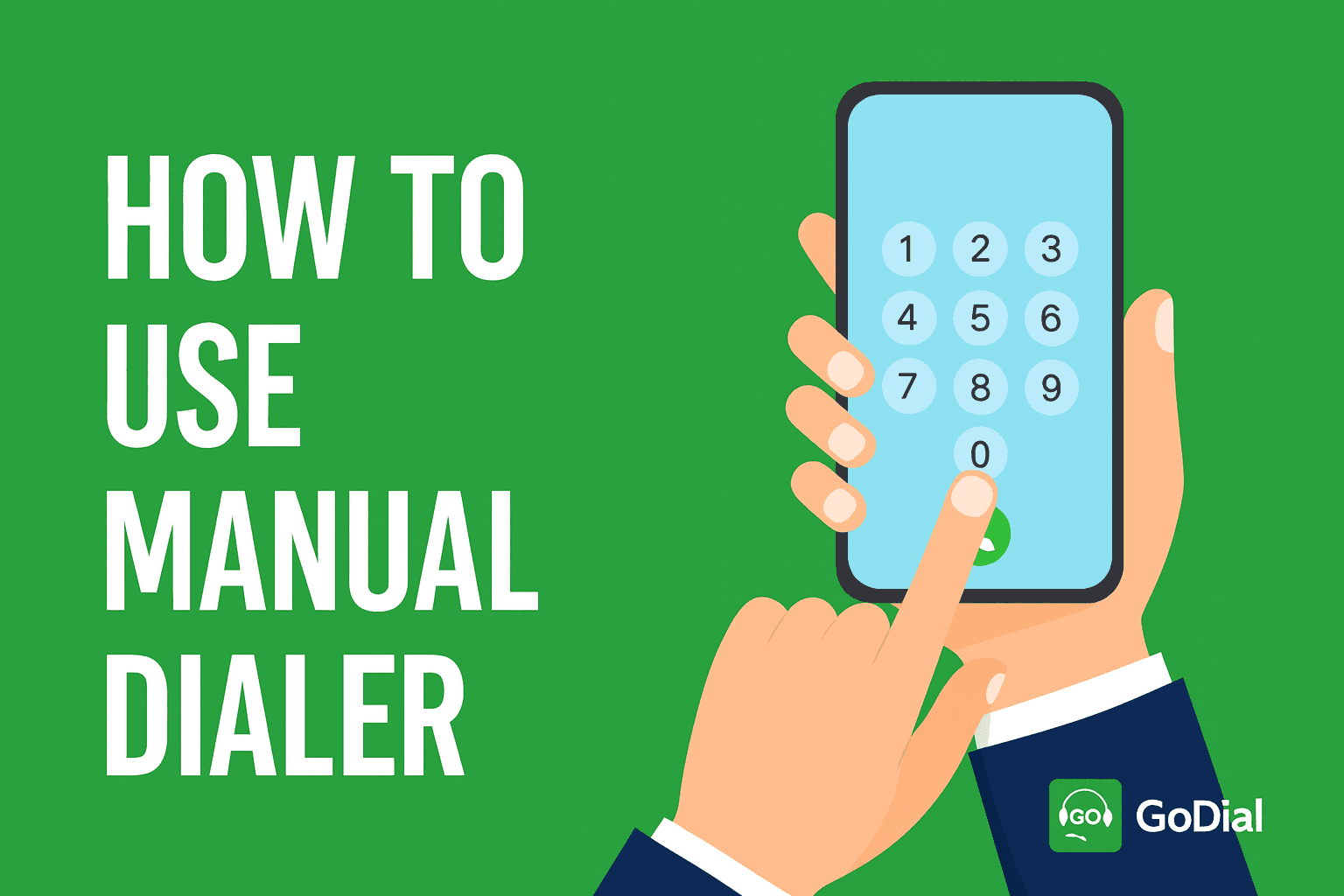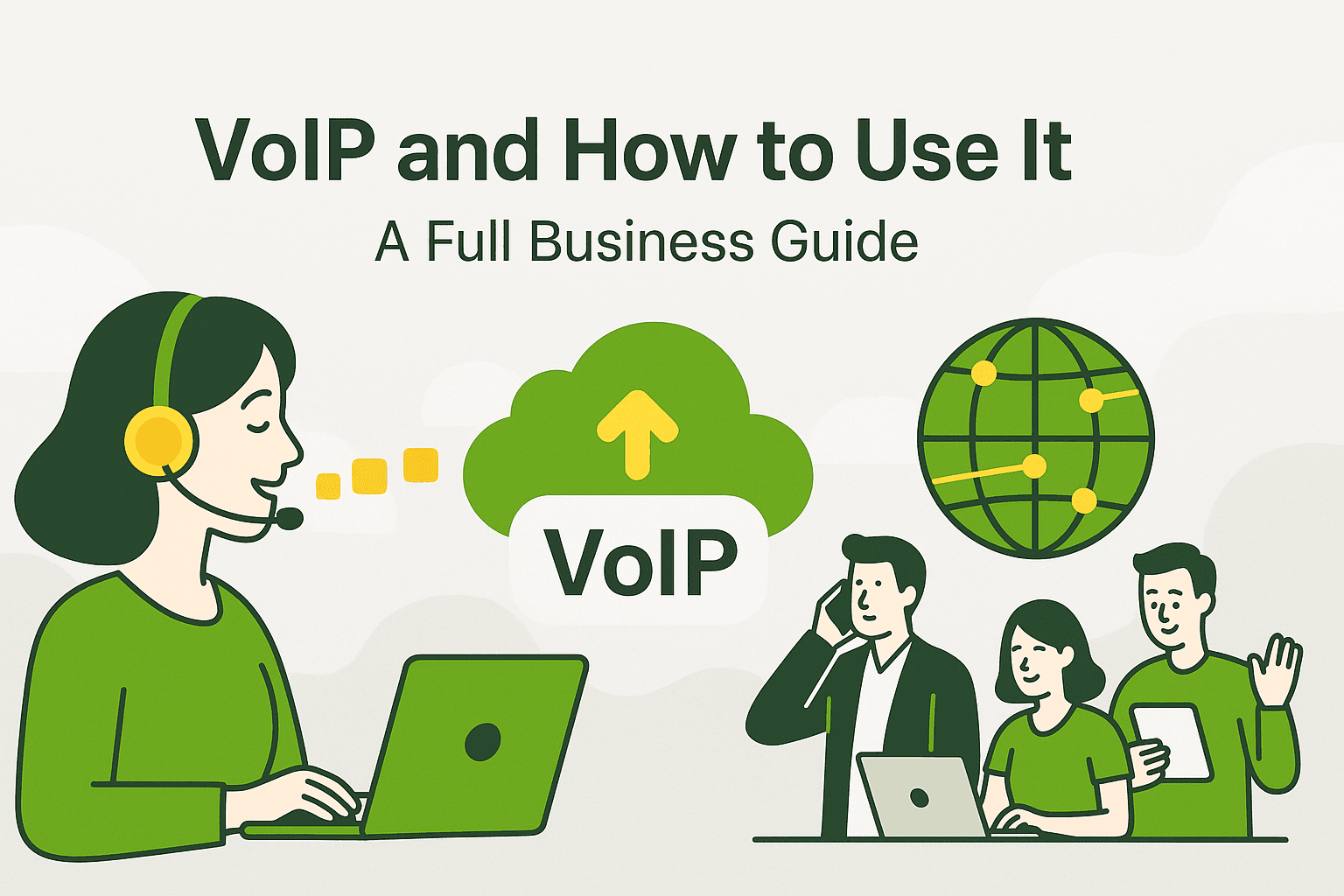
Voice over Internet Protocol (VoIP) has changed how businesses talk to customers all over the world. It’s cheaper, more flexible, and works well with new ways of talking to people.
There are some rules for VoIP in India, though. The Telecom Regulatory Authority of India (TRAI) and the Department of Telecommunications (DoT) have rules that companies must follow.
This guide tells you what’s legal and what’s not, as well as how to set up VoIP in India the right way.
What you can do with VoIP in India
You don’t need a telecom license to make IP-to-IP calls or app-to-app calls. This means that people who have the same app, like WhatsApp, Zoom, or Teams, can call each other.
Businesses can legally make international calls using licensed international long-distance (ILD) providers.
CRM, autodialer, and call center integration: Companies can use legal VoIP services to keep track of calls, recordings, and reports without breaking the law.
What You Can’t Do
Connecting PSTN and VoIP Without a License: In India, you can’t connect VoIP directly to landlines or mobile networks without a Unified License.
Grey Routes & SIM Boxes: Using SIM cards to turn VoIP calls into local GSM calls (toll bypass) is against the law and can get you in trouble.
Unlicensed Caller ID Masking: You have to show a valid number (CLI). Using fake or spoofed IDs is against the law.
Rules and Laws
Unified License (UL) for all telecom companiesTo run PSTN and VoIP services
Registering for OSPCall centers, BPOs, and hosted dialers is still necessary, but it’s easier since 2020.
Most businesses work with licensed ITSPs and TSPs. The Digital Personal Data Protection Act of 2023 says that everyone must follow it.
Checklist for Businesses to Follow
You should only work with licensed VoIP and telecom partners for SIP trunks, DID numbers, and call termination.
Check that the caller ID is real and okay.
Keep call detail records (CDRs) and logs for at least a year.
Let customers record calls if they want to.
Don’t use grey routes or VoIP gateways that aren’t approved.
Last Word
VoIP is legal in India, but you have to use it the right way.
Businesses should only use VoIP services from companies that are licensed and follow the rules set by the DoT and TRAI.
By following the rules, businesses can grow around the world, stay out of trouble, and avoid fines.












